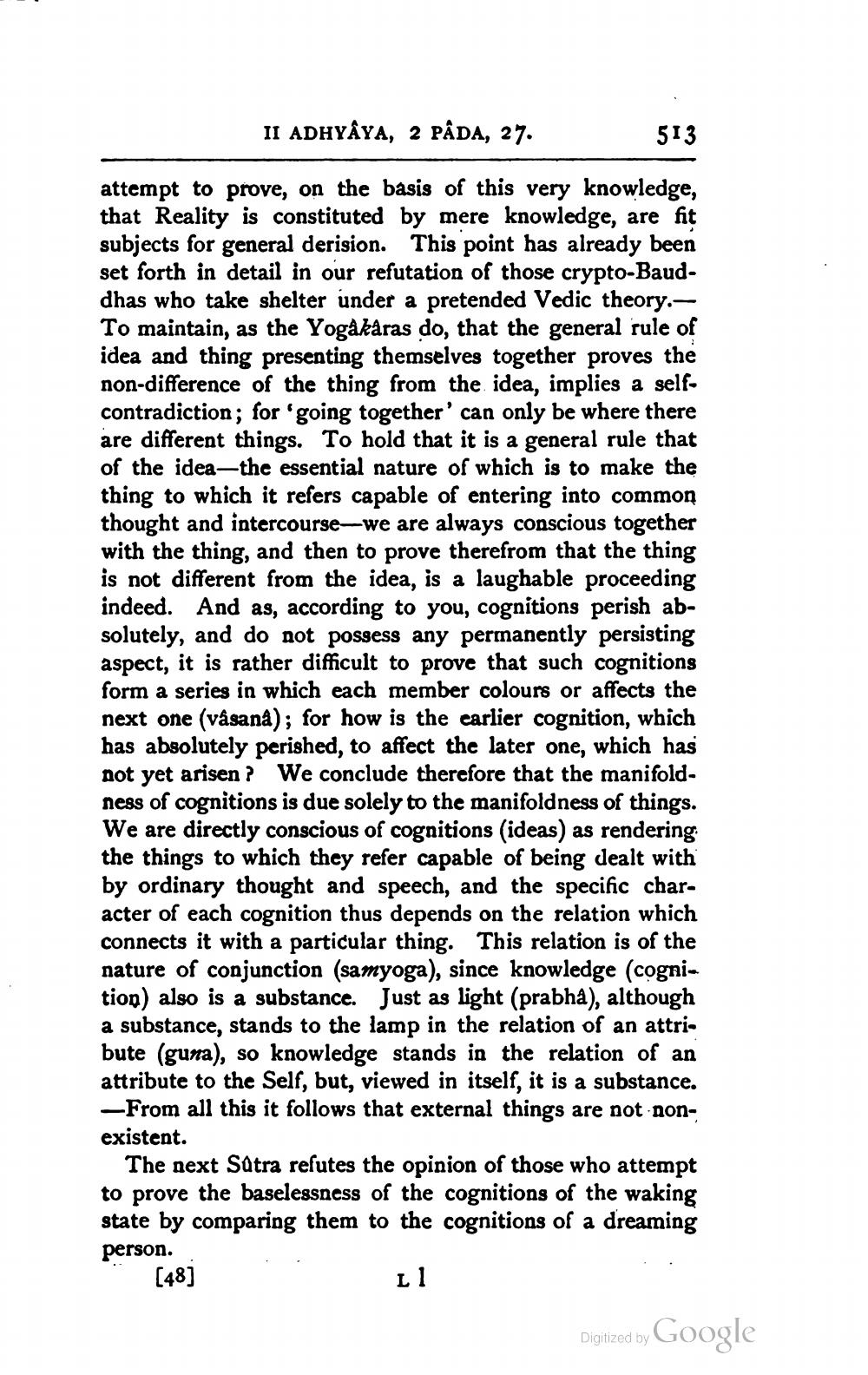________________
II ADHYAYA, 2 PÂDA, 27.
513
attempt to prove, on the basis of this very knowledge, that Reality is constituted by mere knowledge, are fit subjects for general derision. This point has already been set forth in detail in our refutation of those crypto-Bauddhas who take shelter under a pretended Vedic theory.To maintain, as the Yogakäras do, that the general rule of idea and thing presenting themselves together proves the non-difference of the thing from the idea, implies a selfcontradiction; for going together' can only be where there are different things. To hold that it is a general rule that of the idea—the essential nature of which is to make the thing to which it refers capable of entering into common thought and intercourse we are always conscious together with the thing, and then to prove therefrom that the thing is not different from the idea, is a laughable proceeding indeed. And as, according to you, cognitions perish absolutely, and do not possess any permanently persisting aspect, it is rather difficult to prove that such cognitions form a series in which each member colours or affects the next one (vâsana); for how is the earlier cognition, which has absolutely perished, to affect the later one, which has not yet arisen? We conclude therefore that the manifoldness of cognitions is due solely to the manifoldness of things. We are directly conscious of cognitions (ideas) as rendering: the things to which they refer capable of being dealt with by ordinary thought and speech, and the specific character of each cognition thus depends on the relation which connects it with a particular thing. This relation is of the nature of conjunction (samyoga), since knowledge (cogni. tion) also is a substance. Just as light (prabha), although a substance, stands to the lamp in the relation of an attribute (guna), so knowledge stands in the relation of an attribute to the Self, but, viewed in itself, it is a substance.
-From all this it follows that external things are not nonexistent.
The next Sutra refutes the opinion of those who attempt to prove the baselessness of the cognitions of the waking state by comparing them to the cognitions of a dreaming person.
[48]
11
Digitized by Google
Digitized by




